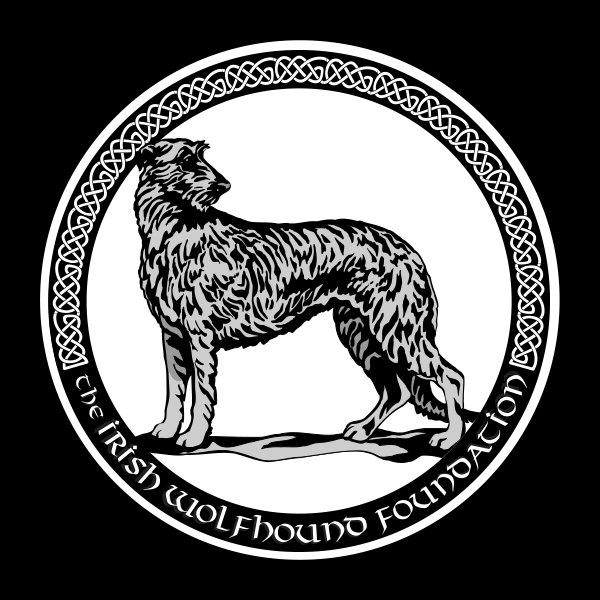One of the newest threats to our hounds is the Canine Influenza Virus (CIV). There are actually two forms of CIV, the H3N8 strain, which has been around since at least 2005, and the H3N2 strain, which was first reported outside of Asia in 2015.
The symptoms of a CIV infection resemble those of “kennel cough”. Dogs infected with CIV develop a persistent cough and may develop a thick nasal discharge and fever (often 104-105oF). Other signs can include lethargy, eye discharge and reduced appetite. Canine influenza infections can cause mild to severe symptoms in dogs. Some dogs may show no symptoms at all but are still able to spread the disease.
Most dogs recover within 2-3 weeks. However, some dogs may develop secondary bacterial infections which may lead to more severe illness and pneumonia. This is the biggest risk for Irish Wolfhounds. Like any pneumonia in our breed, symptoms should be treated promptly and aggressively with broad spectrum antibiotics.
There are laboratory tests for both strains, however, there no quick clinical tests so symptoms should be treated without waiting for the outcome of tests.
Dogs infected with CIV are highly contagious and almost all dogs exposed to CIV will become infected. The majority (80%) of infected dogs develop symptoms. The disease itself is rarely lethal but secondary infections are common and can be fatal.
While dogs with H3N8 are contagious for a relatively short period of time, dogs with H3N2 canine influenza should be isolated for at least 21 days and, since it may not be possible to immediately determine the strain of the virus, conservative treatment is recommended.
Influenza viruses do not usually survive in the environment beyond 48 hours and are inactivated or killed by commonly used disinfectants so hand washing and good sanitation can help reduce the spread of disease.
There is now a bivalant vaccine for both the H3N8 and H3N2 strains of canine influenza virus. The CIV vaccination is a “lifestyle” vaccination, recommended for dogs at risk of exposure due to exposure to other dogs – such as boarding, dog shows, training classes and visiting dog parks. However, because of the serious risk of secondary infection in our breed, it is recommended that most wolfhounds be either vaccinated or protected from exposure.
Additional Resources:
For general information:
https://www.avma.org/public/PetCare/Pages/CanineInfluenza.aspx
https://www.avma.org/KB/Resources/FAQs/Pages/Control-of-Canine-Influenza-in-Dogs.aspx
For information on clinical testing:
https://ahdc.vet.cornell.edu/news/civ.cfm
For information on vaccines:


